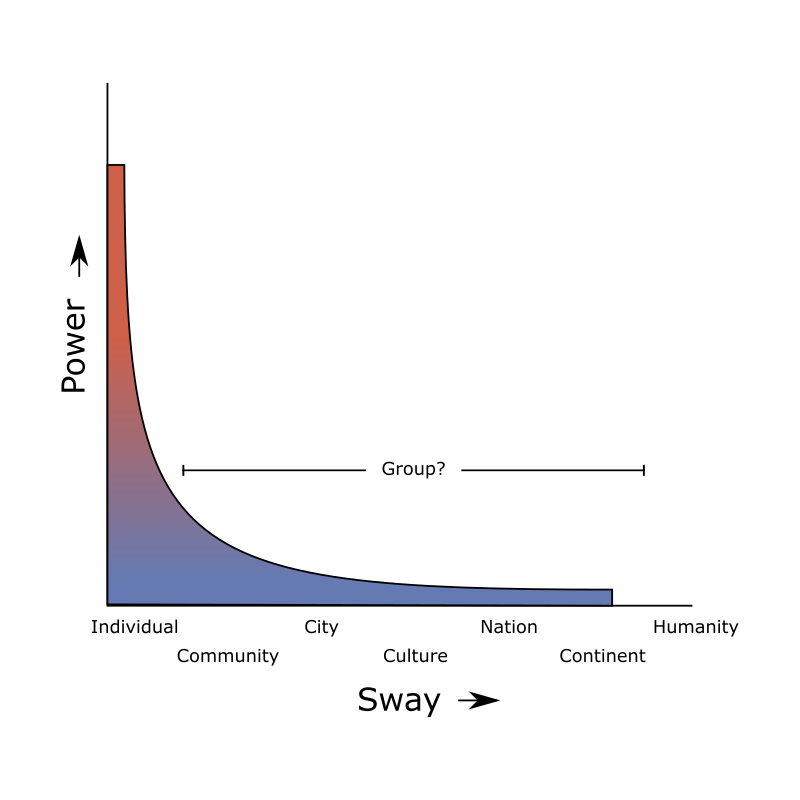I realised after I sent the letter that I might have been wrong to say you dismissed it because it was Jesus. What I meant to say is that you dismiss it because it comes from a religion. Ex Schola would have been the better phrase to use, but because it’s less pretentious it’s less fun to say in a letter.
It’s absolute madness that fundamentalists think The Bible is perfect. And the exact opposite to this, which is to think it’s perfectly and absolutely flawed, is also madness. If you had never heard that quote before, but instead read it as wise advice given a besieged protagonist in a Shakespeare play: “Give no thought for the morrow”, I’m sure you’d assume it was jolly optimism, at least poetic license and maybe even a truth with tiny reach. To dismiss something because of its source is the same sin as to accept something because of its source.
“All’s well that ends well”. Really? Ends always justify means? “Too many cooks spoil the broth”? You won’t last long if you never collaborate. “Many hands make light work”? Idiocy, it’ll never function without electricity.
The halo effect is a problem, but it’s not a problem that justifies sceptical overcompensation. Because the latter is just another way of being wrong.
Your description of democracy certainly matches the most visible events that improved people’s lives, but I think this is the availability bias at work. There must also be many situations where a positive change was made that we didn’t notice, hidden in some bill. And also a whole host of changes that, by not making them, we made the world better.
Either way surely we must agree that the drama you described is at most half the story. The other half being a responsibility to voluntarily submit to rules and norms. Compared to the natural state of humanity, i.e. a kind of solipsism with one conscious thinker and a world to exploit, civilisation demands people to sacrifice vast swathes of their natural urges and desires. The people in Western society are denied the freedom of primitive satisfactions, and in exchange these sacrifices unlock new and better freedoms.
Regarding the power of groups, how about this proposal. I think the best society is fractal, with power being proportional to the reach the entity has (the damage it can do) which I’ll call sway to distinguish it from the other “reach” we use a lot.
That kind of system generates a power-law like I’ve drawn below. This is what I think Western society has built (or is at least closest to building) . All ideologies appear as erect, thin phalluses on this graph. Like penises they can think of only one thing. Fascism stands stiff at the nation, while libertarians throb over the individual only. In this model groups have more power than governments, but individuals have more power than groups. Also at any point in time the total amount of power (area under the graph) is fixed so an increase in one place reduces it in other places.*** Now here we have a problem, how do you define “group”?
The benefit of the discrete sway levels on the x axis that they’re well defined and limited (culture is not great in this respect). For example a city is geographical. No mayor can argue they’re not really a city. If Bloomberg said “I don’t speak for New York but I speak for the whole country” , he’s demonstrably wrong. Identity on the other hand is a terrible group marker because it’s superficial, flexible and being by definition an intellectual invention, it’s potentially unlimited. This group definition means a Richard Spencer speaking on behalf of a white “American” identity, or a BLM speaking on behalf of the Black Community, their actual jurisdiction isn’t clear. We rely on them to define their own identity, thus define their own sway. This is generally a bad idea. And if either of them had their way they’d have the power of a community at the level of the entire nation.
In the past when we reached a similar disagreement you’ll point to the fact that so many inequalities are correlated by race. That is true. If you want to get to the heart of it though, it’s the inequalities that are the problem, and the inequalities themselves are better group markers than the colour of someone’s skin. They’re just harder to rile people up about. This would mean a “The lives of people with IQ below 70 matter” campaign or a “Tight America” campaign of those born into families with $0 inheritance. These are measurable, well defined groups with worse lots in life. It’s harder to sell but has the benefit of not being racist.
Mat
PS Nah bro, I gave you the two extremes of reparation outcomes possible in complex systems and you made that comparison. Either that or it’s an extremely obvious comparison to make, you tell me. Anyway the problem here is that you’re not proposing anything graspable enough to evaluate. Another rule about intervention in complex systems. If you’re proposing the intervention, you are responsible for defining it and proving it won’t do harm. In addition you should be willing to personally pay the cost (I just started reading Skin In The Game). But if the extent of your proposal is an intervention that intervenes “enough” to “solve the problem” but “not too much” that it makes things worse, then, well you might get brownie points from some groups but only a slow clap from me.
* By saying “at one point in time” I’m leaving open the possibility that total power can grow over time. I think it can but that doesn’t affect my points above.
Also published on Medium.
